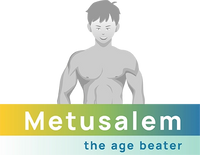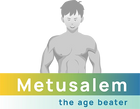Enhancing Longevity: The Power of Plant-Based Diets

Overview
Plant-based diets, particularly those rich in vegan pea protein, offer significant health benefits, including reduced inflammation, improved heart health, and lower risk of chronic diseases. They can also support healthy ageing and environmental sustainability. Incorporating more plant-based foods into your diet can enhance overall well-being and contribute positively to the planet.
Frequently Asked Questions
1. What is a plant-based diet?
2. How does a plant-based diet impact aging?
3. What are the health benefits of following a plant-based diet?
4. What is vegan pea protein and why is it beneficial?
5. How can I start incorporating a plant-based diet into my daily life?
As we age, the choices we make in our diets can significantly impact our overall health and longevity. Among the dietary trends that have gained remarkable attention in recent years, plant-based diets stand out not just for their health benefits but also for their environmental impact. This article explores the profound effects of a plant-based diet, particularly vegan pea protein, on the aging process, how it nourishes our bodies, and the benefits it offers for a healthier life.
Understanding Plant-Based Diets
A plant-based diet focuses on foods that primarily come from plants. This doesn’t mean that you have to become vegetarian or vegan and entirely give up meat or animal products. Instead, you can start incorporating more healthful plant foods into your daily meals. These include:
- Fruits and vegetables
- Legumes and pulses
- Nuts and seeds
- Whole grains
- Plant oils and healthy fats
Vegan pea protein is one such plant-based option that is gaining popularity due to its high nutrient content and health benefits. It is an excellent source of protein, making it a favourite among those looking to supplement their dietary intake while still adhering to a vegan diet.
The Connection Between Diet and Aging
The role of nutrition in the aging process is a crucial area of research. Studies have shown that a diet rich in plant-based foods can slow down the aging process and mitigate chronic diseases that often come with it. The bioactive compounds found in these foods, such as antioxidants and phytochemicals, provide several protective functions.
Why a Plant-Based Diet is Beneficial
There are numerous advantages to following a plant-based diet, particularly when it comes to aging. Here are some of the most notable benefits:
- Reduced Inflammation: Diets high in fruits and vegetables can reduce inflammation in the body, a key factor in many age-related health issues.
- Improved Heart Health: Plant-based diets have been linked to lower cholesterol levels and improved cardiovascular health, essential as we age.
- Weight Management: Such diets are usually lower in calories, helping individuals maintain or lose weight, which is vital for overall health in later life.
- Enhanced Digestive Health: The fibre from plant foods supports gut health and prevents numerous digestive disorders.
- Lowers Risk of Chronic Diseases: Research suggests that plant-based nutrition can significantly lower the risk of diabetes, cancer, and other chronic illnesses.
Vegan Pea Protein: A Versatile Superfood
Within the realm of plant-based proteins, vegan pea protein deserves special mention. Extracted from yellow peas, it is not only a potent source of protein but also boasts an impressive nutrient profile. Here’s why vegan pea protein can be a cornerstone of a plant-based diet:
High Protein Content
Vegan pea protein provides a robust quantity of protein, which is crucial for maintaining muscle mass as we age. Muscle loss is a natural part of the ageing process, and incorporating sufficient protein into our diets helps mitigate this, thus supporting overall health and mobility.
Rich in Essential Amino Acids
Unlike many plant proteins, vegan pea protein contains all nine essential amino acids in adequate amounts. This makes it a complete protein source, which is particularly beneficial for those on a vegan diet who may struggle to get all necessary amino acids from other sources.
Promotes Satiety
Including vegan pea protein in your meals can help to promote feelings of satiety and fullness. This is especially important for anyone looking to manage their weight as they age, as maintaining a healthy weight can help stave off various age-related diseases.
Integrating Plant-Based Diets into Your Daily Life
If you’re considering making a shift towards a more plant-based lifestyle, here are some practical tips to start incorporating plant-based foods, just like vegan pea protein, into your daily routine:
Start Gradually
You don’t need to flip your diet overnight. Start by introducing one plant-based meal per day or designate specific days of the week as “plant-based” to ease yourself into this new eating pattern.
Experiment with Recipes
Try out new recipes that highlight plant-based ingredients. From hearty lentil stews to vibrant salads and smoothies with vegan pea protein, there are countless options to keep your meals exciting.
Focus on Nutrient Density
When switching to a plant-based diet, aim for a diverse range of nutrients. Include various colourful fruits and vegetables, whole grains, and healthy fats to ensure you’re providing your body with all it needs.
Stay Educated
Educate yourself on the nutritional aspects of a plant-based diet. Understanding which food combinations provide essential nutrients will help you create balanced meals.
The Societal Benefits of Plant-Based Diets
In addition to personal health benefits, opting for a plant-based diet can have far-reaching effects on the environment. Here are some positive societal impacts of embracing plant-based eating:
Reduced Carbon Footprint
Shifting towards a plant-based lifestyle can significantly reduce your carbon footprint. Animal agriculture is responsible for a substantial percentage of greenhouse gas emissions, so consuming more plant-based foods is a simple yet impactful way to contribute to environmental sustainability.
Conservation of Resources
Producing plant-based foods usually requires fewer resources than animal agriculture. This allows for more efficient use of land and water, which is increasingly important as global populations rise.
Real-Life Success Stories
Many individuals report transformative experiences after transitioning to a plant-based diet. Here are a couple of inspiring stories:
Health Transformation
A 60-year-old man diagnosed with high cholesterol and blood pressure made the shift to a plant-based diet. Within a few months, not only did he lose weight, but his cholesterol levels dropped dramatically, and he even found himself feeling more energetic than ever before.
Reversing Age-Related Conditions
A study followed a group of individuals who transitioned to a vegan diet high in whole foods. Over a year, participants reported improvements in joint pain, better mobility, and increased vitality, highlighting the potent anti-inflammatory effects of a well-planned plant-based diet.
Recharge Your Journey Towards Healthy Ageing
Choosing to embrace a plant-based diet, particularly one rich in vegan pea protein, can yield numerous health benefits, including reduced inflammation, increased nutrient density, and a lower risk of chronic diseases. The holistic benefits extend beyond personal health, fostering environmental sustainability and contributing to a healthier planet. With every meal, you have the power to nourish not just your body but also the world around you. So, why not embark on this rewarding journey towards a longer, healthier life?
Linked Product

Vegan Pea Protein - 500g
it is also a good source of iron, making it beneficial for those following a plant-based diet. Its neutral taste allows for easy incorporation into various recipes, from smoothies to baked goods. This versatile protein powder can support muscle recovery and overall wellness without added sugars or preservatives.
View Product
